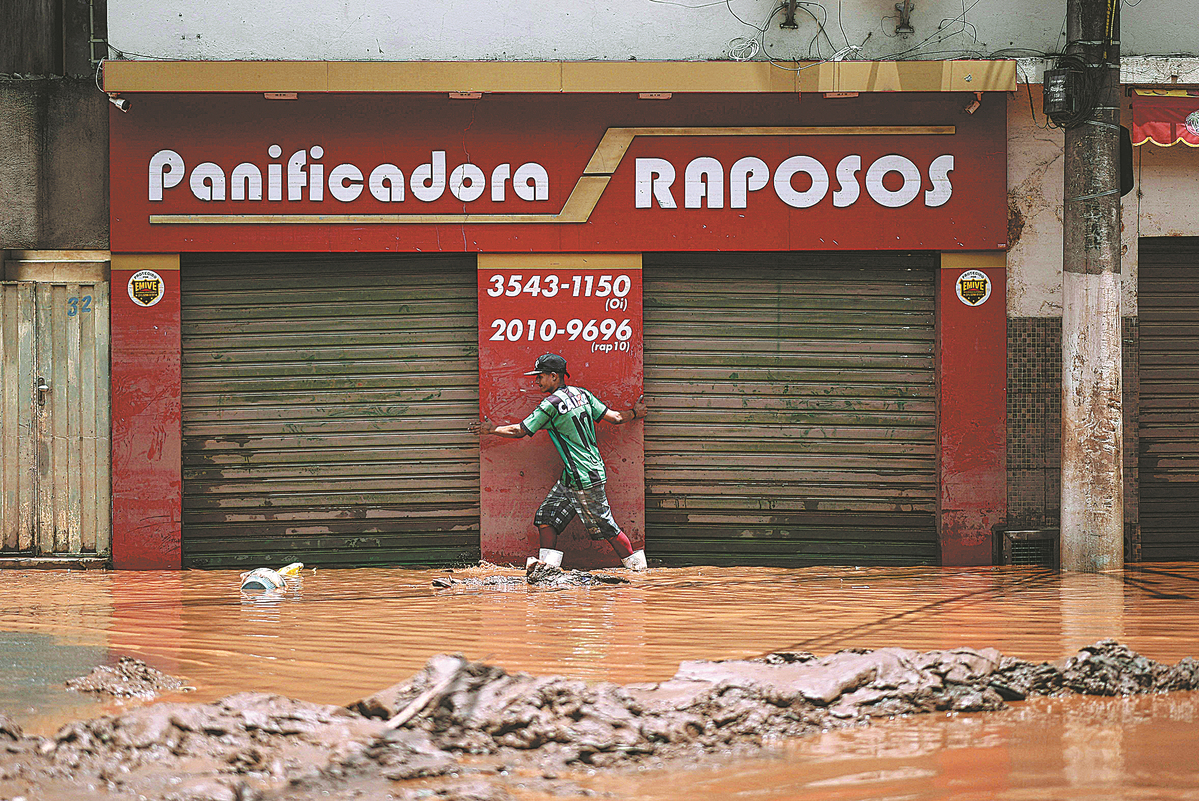Climate seen as top risk to world economy
By BO LEUNG in London | China Daily | Updated: 2022-01-13 07:45

Failure to act on crisis will hold back recovery, WEF poll finds
The climate crisis will be the top risk during the next decade, according to the World Economic Forum's latest Global Risk Report, which also listed cybersecurity and growing social divides as emerging threats to the global economy.
As the world started the third year of the coronavirus pandemic, most experts taking part in the research said they believe a global economic recovery will be volatile and uneven during the next three years.
The 17th edition of the report was released ahead of the forum's planned gathering of world leaders and chief executives at the Swiss ski resort of Davos. But the physical meeting was canceled for a second year due to the pandemic and a virtual meeting will take place instead in mid-2022.
The report, published in partnership with global professional services firm Marsh McLennan, Zurich Insurance Group, and SK Group, questioned nearly 1,000 risk experts and global leaders in business, government, and civil society.
They said climate action failure, extreme weather events, and biodiversity loss/ecosystem collapse were the top three global risks for the coming decade.
"The economic crisis created by the COVID-19 pandemic risks delaying efforts to tackle climate change by encouraging countries to prioritize short-term measures to restore economic growth, regardless of their impact on the climate, over pursuing green transitions," the WEF said.
Nearly 77 percent of respondents said international efforts to mitigate climate change have "not started" or are in "early development".
Peter Giger, group chief risk officer at Zurich Insurance, said: "The climate crisis remains the biggest long-term threat facing humanity. Failure to act on climate change could shrink global GDP by one-sixth and the commitments taken at COP 26 are still not enough to achieve the 1.5 C goal.
"It is not too late for governments and businesses to act on the risks they face and to drive an innovative, determined, and inclusive transition that protects economies and people."
Other challenges
Societal risks made up a third of the global top 10, with societal cohesion erosion and livelihood crises completing the top five. The risk from infectious diseases was rated sixth.
The report found developing economies will contract to 5.5 percent less than their pre-pandemic GDP growth by 2024, while advanced economies will surpass it by 0.9 percent. It said that fact will impact how the world will be able to tackle common challenges, including climate change, enhancing digital safety, restoring livelihoods and societal cohesion, and managing competition in space.
"Health and economic disruptions are compounding social cleavages," said Saadia Zahidi, managing director of the World Economic Forum. "This is creating tensions at a time when collaboration within societies and among the international community will be fundamental to ensure a more even and rapid global recovery."
The pandemic has also shifted more people to depend on digital systems, such as through working or studying from home. This, according to the report, has fundamentally altered societies.
Rapid digitization in advanced economics during the pandemic has also led to new cyber vulnerabilities, it said.
The report notes that "attacks on critical infrastructure, misinformation, fraud, and digital safety will impact public trust in digital systems and increase costs for all stakeholders".
Carolina Klint, risk management leader at Marsh McLennan, said: "With cyber threats now growing faster than our ability to eradicate them permanently, it is clear that neither resilience nor governance are possible without credible and sophisticated cyber risk management plans."
























